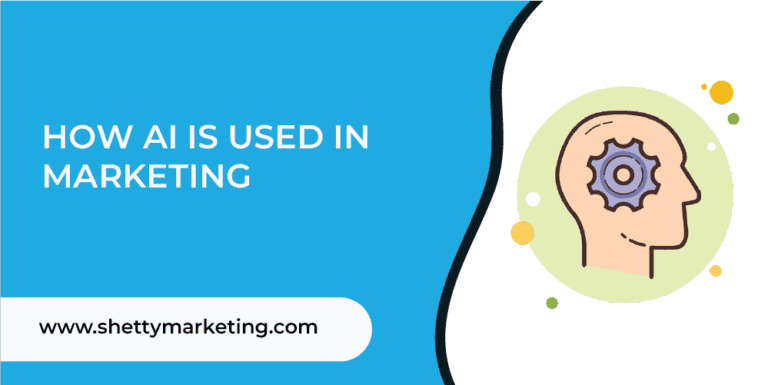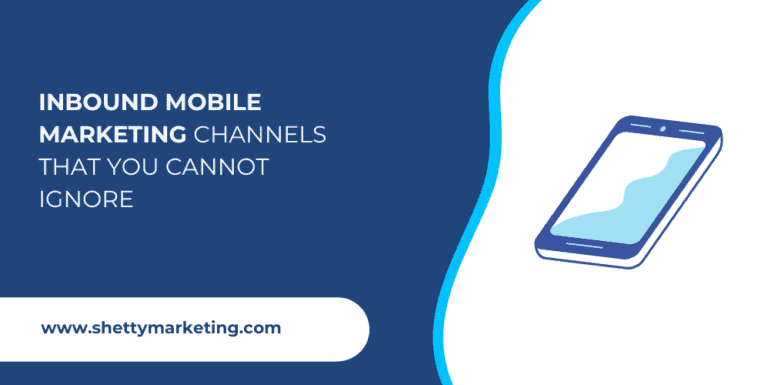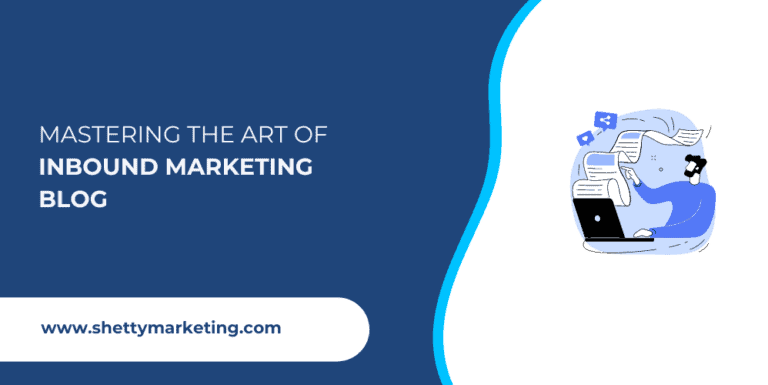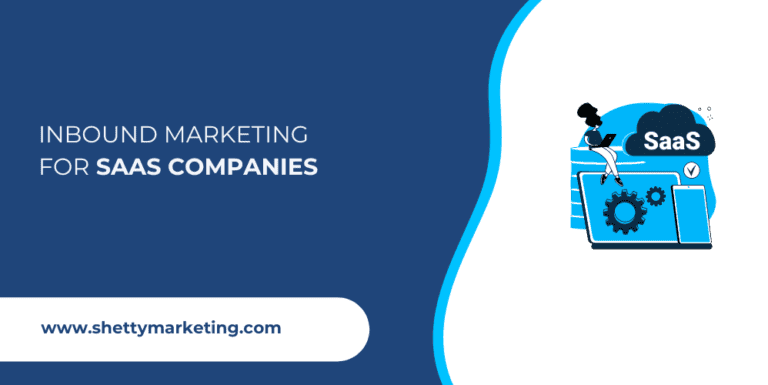Ever since Artificial intelligence has been evolving, many industries have been trying to implement it in their workflow.
However, AI is used in marketing to analyze and interpret all the customer data to improve conversions, customer relations, and now, content creation.
In this blog, we will go over the various applications of AI in marketing strategies.
1. AI Chatbot marketing :
Over the years, many digital marketing businesses have used chatbot marketing, which is completely automated. Though it is a really good way of offering a personalized experience to users, it lacks the ability to learn the intent of the user.
For example, if you visit a website and respond to the message “Hi, how can I help you?” with the text “pricing,” the next message you receive is determined by the rules set by the administrator. If he did not include the word “pricing” as the programmed answer, you will see an error. This is due to the fact that the entire model doesn’t have the capability to interpret data. It just follows the rules set by the admin
However, in AI chatbot marketing, natural language processing, deep learning technology, and other algorithmic forms of intelligence are used. The program is fed with input data that it interprets and translates into a relevant output, which is essentially the response the user receives after responding to the question. So, if you respond with the words “pricing, price, cost,” or something similar, the A.I technology will be able to interpret the message and direct you to the pricing page. With machine learning, the AI tool will become smarter over time.
If you are still confused, just think of how Google works. It’s the same concept.
2. AI in Content writing
Recently, I read an article in Guardian which was completely written by a robot.
It was a fairly interesting read. However, it made me wonder if artificial intelligence writers will be able to replace traditional writers in the future completely. After speaking with a few marketing experts, I received some reasonable responses.
GPT-3 is used by the majority of AI writing tools. It is designed to look like human-generated language (aka natural language processing or NLP). It has gotten a lot of attention in the tech press, and for good reason: from full blog posts to tweets, the AI application produces content that could easily pass for human writing.
I have personally used tools such as Jasper (previously known as conversion.ai), Rytr, and Frase.io. Though these tools produce relevant content, it lacks the natural flow of the narrative.
I personally, don’t see it as a major drawback. What can you expect from a Robot?
Nevertheless, I do get a lot of valuable information from this GPT-3 generated content which I can properly structure and add that natural flow. Surprisingly, there are a few tools such as Frase that help in generating SEO-optimized content using valuable insights it gets from the top 10 listings of the first page of Google for a given keyword. If you are looking to generate quick SEO-optimized content, Frase is the way to go.
Overall, AI writing assistants are a new breed of technology that help writers write better, faster, and smarter. They are not a replacement for human writers but they can help them be more productive. These AI writing assistants have different use cases in various industries like digital agencies, marketing firms, and more.
3. Artificial intelligence in content marketing
I’ve been tracking customer journey insights on websites with Google Analytics and Hotjar for years. However, AI has altered the entire CRO landscape now. Many new businesses (particularly e-commerce stores) have implemented AI solutions on their websites because they lack the time and manpower to monitor website metrics.
Related: Marketing strategy for a new business ( 5 smart marketing strategies)
By tracking customer behavior on the website using machine learning and artificial intelligence, AI has aided businesses in producing customized products and services. After understanding what content or element on the page consumers resonate with, it analyses enormous amounts of data and makes difficult marketing decisions. It can detect changes in client purchase behavior on a website and recommend appropriate products based on their search patterns and website activity.
For example, suppose a user is looking for an e-bike in an online store. It analyses the keywords entered by the user in the search bar, the filter options selected by the user, and the amount of time spent on a product page to make recommendations.
These AI-powered solutions assist customers in finding what they are looking for, resulting in a positive customer experience.
4. Artificial intelligence in social media marketing
Most businesses use social media marketing for brand awareness and customer engagement. Content is what engages your target audience with your brand. Creating material for your social media accounts might take hours, and you’ll still need to distribute it, handle conversations, and monitor its performance.
AI-Powered tools such as Rytr can provide assistance to business owners to generate accurate and relevant posts in a fraction of the time. It can be used to create ad copies for Facebook and LinkedIn advertising.
Lately is another AI-powered application that can be integrated with Hootsuite to analyze the content that resonates with your target audience and then generate a writing model that you can use to create long-form posts.
Furthermore, it can generate small content splinters from long-form posts, which you can then share on your social network handles to maximize engagement.
AI-powered solutions can assist agencies and marketers with A/B split testing.
As a marketer, I’ve spent countless hours trying to find the right variable in a marketing campaign. Though A/B split testing is at the heart of any marketing campaign, determining the right variable requires a significant amount of time and effort.
AI systems can combine multiple variables to determine the best one. For example, if you are running an email campaign with 4000 customers, you can use a tool like Uberflip to determine what content they are interested in. It gives you the information you need to make the necessary changes to your email campaigns in order to increase the number of time users spend on your website.
5. Artificial Intelligence in Pay Per Click marketing
AI creates a plethora of new opportunities in Paid marketing. It compares the search terms you provide and the maximum bids your competitors employ for those search terms to the Google search algorithm to identify low-hanging fruits that can help you get conversions.
Moreover, some AI-Powered tools monitor the account hourly and make automated optimizations without the need for manual adjustments. Optmyzr is one such tool that can scale PPC on Google, Facebook, Amazon, and Bing. I personally love its big management system which carries out hourly bid adjustments to maximize your ROAS.
6. AI in Inbound Marketing
Inbound marketing is nothing but creating quality content for your potential customers on various marketing channels so that it attracts them to your offerings. Unlike outbound marketing, it is much easier to convert a prospect via Inbound marketing.
There are three stages of Inbound marketing that can be automated using AI.
1. Awareness Stage: AI-Powered content curation tools such as Jasper can generate content from scratch using GPT technology. To add on, tools such as Surfer SEO can use NLP (Natural Language Processing) to optimize the content for the machine-learning algorithms of search engines such as Google.
2. Consideration Stage: Another AI tool called OneSpot is used by many businesses to increase conversion rates. The tool uses artificial intelligence technology and machine learning and goes through the content of the site and then personalizes content for each individual customer.
3. Conversion stage: Growbots AI is another self-updating program with a database of over 200 million contacts from various businesses. Simply enter the information about the buyer profile you want to target, and it will supply you with contacts who are easy to convert to clients.
Why is AI Marketing important? Is it even necessary?
Marketers and business owners devote incalculable amounts of time to marketing. Creating personalized content, conversion rate optimization, answering customer queries, paid marketing, and taking data-driven decisions, all take a significant amount of time. Instead, they can concentrate on other important tasks. Therefore, AI marketing tools are very necessary to improve your marketing efforts.
Whether you like it or not, AI is removing a lot of human labor. You should have a better understanding of how AI uses data analysis to identify patterns that are invisible to the human eye after reading the preceding use cases. It also provides predictive analysis, allowing the company to be more proactive rather than reactive to unexpected changes.
Can AI replace marketers? How marketers and AI can work hand in hand?
In a nutshell, no! AI cannot replace human intelligence.
It’s important to remember that artificial intelligence’s purpose is enhancement, not creation. Although I use AI writing tools when writing blogs, I don’t completely rely on them. I use it to gather ideas for blog posts. There’s a big difference between the two.
Furthermore, in the real world, AI cannot understand the emotional points that we humans do. As a result, there will always be a human touch.
You can use AI to help you create profitable marketing campaigns in the long run. As a marketer or business owner, you should be aware of when and how to make use of it. Combining artificial intelligence (AI) with human judgment can result in the perfect product-market fit.





